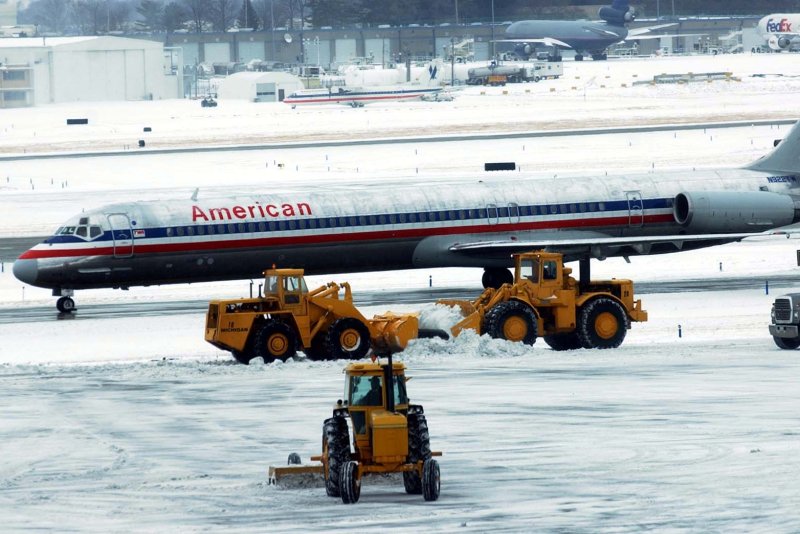Anywhere there's de-icing going on, researchers say, groundwater may be getting robbed of oxygen. File photo by Bill Greenblatt/UPI |
License Photo
JENA, Germany, April 29 (UPI) -- Groundwater near the airport runway in Oslo, Norway, lacks oxygen, and the soil there is degraded. According to new research, these conditions are likely present anywhere airplanes are frequently de-iced.
As the winter's snow mounds melt into the soil, they take along contaminants that have accumulated all winter long. Along the edges of airport runways, melting snowbanks contain the chemicals that make up de-icing agents -- propylene glycol, potassium formate and others.
As a new study out of Germany showed, these pollutants diminish the amount of oxygen in groundwater and erode soil quality.
Scientists from the University of Jena acknowledge that soil works well to filter and disarm many pollutants, including de-icing chemicals. But the microorganisms that break down invading chemicals must work overtime to perform their cleanup duties, robbing groundwater of oxygen.
"The more of these substances they have to metabolize, the more oxygen they use for this," lead study author Heidi Lissner, a geoscientist at Jena, explained in a press release.
The subsequent lack of oxygen in the water, Lissner and her colleagues point out, causes iron and manganese oxides -- minerals that help stabilize soil structure -- to dissolve.
As the soil and water samples collected by scientists proved, the meltwater pollutants not only rob the percolating water of oxygen, but also diminish soil quality. Researchers say the results could effect nearby aquifers, and that their findings speak not just to the airport in Oslo but to runways everywhere.
"Chemicals for de-icing aircrafts as well as runways are used wherever there is snow and ice in winter," added co-author Dr. Markus Wehrer, a hydrologist at Jena.
The study was published in the journal Environmental Science and Pollution Research.















